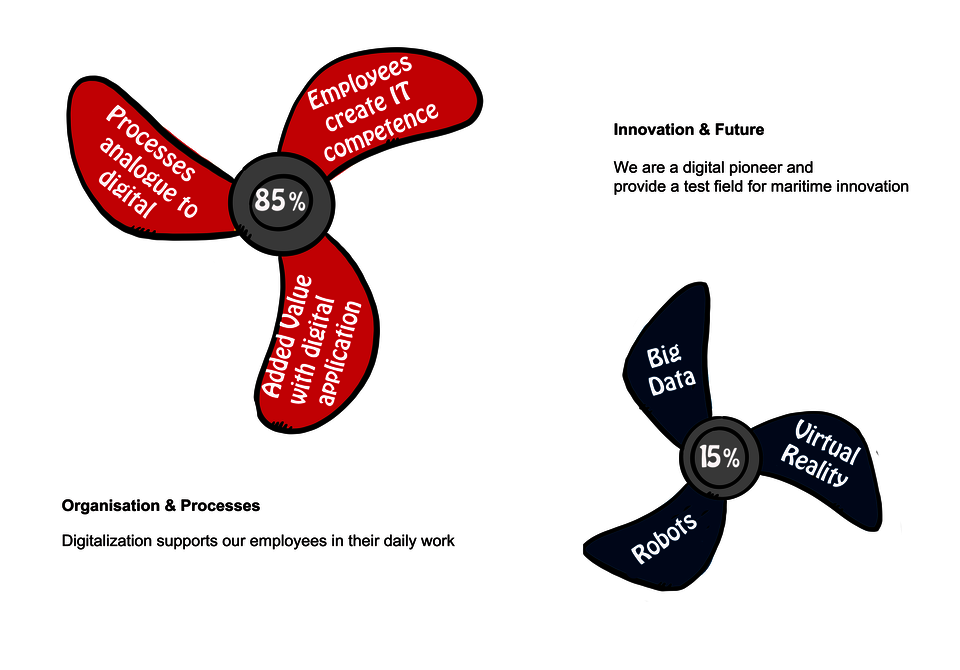

Our top priorities for digitalization
At Flotte Hamburg we do not just implement digitalisation for the sake of it. We deploy digitalisation as a driver and a tool to support our fleet management concept and accelerate our eco-friendly development.
Flotte Hamburg wants to present its employees and stakeholders with a vision and a clear strategy for its development into a modern, fully-digitalised shipping company. Our digitalisation strategy should also address the needs of our employees and show them the added value that digitalisation creates by means of specific projects focussed on the improvement of work processes. The employees should be relieved of unnecessary tasks and be able to concentrate on our core business instead. Digitalisation helps achieve this by enabling us to automate certain recurring tasks.
About 85% of our digitalisation activities focus on daily processes and workflow organisation, but we still take time to examine the innovative, digital topics of the future.
The digitalisation of our organisation and processes is our top priority.
Examples include:
Flotte Hamburg aims to be a digital pioneer and act as a test bed for maritime innovations in port logistics. While innovation and future technologies have a lower priority than the digitalisation of the organisation and processes, they are essential to the future of Flotte Hamburg and will therefore be addressed at the same time as higher priority topics.
The following technologies have been identified as very promising: